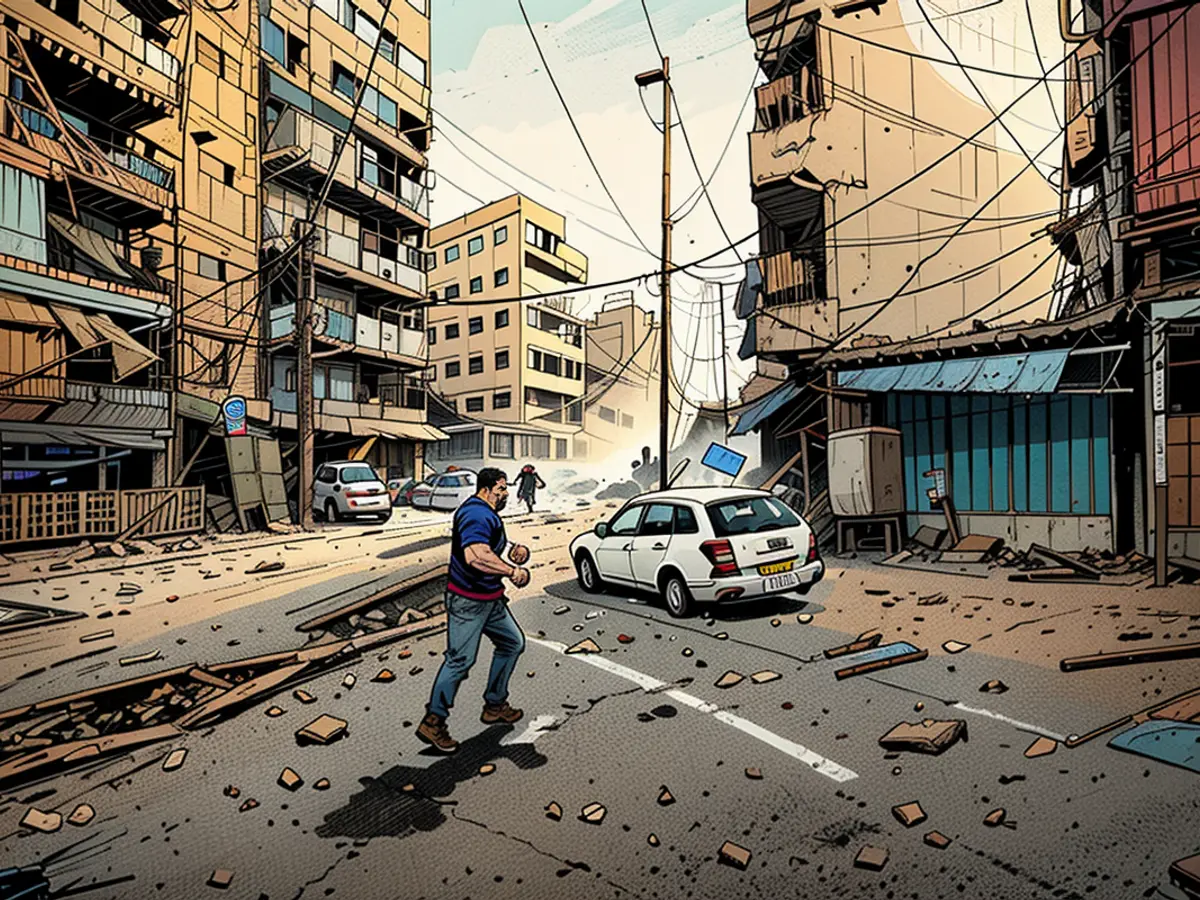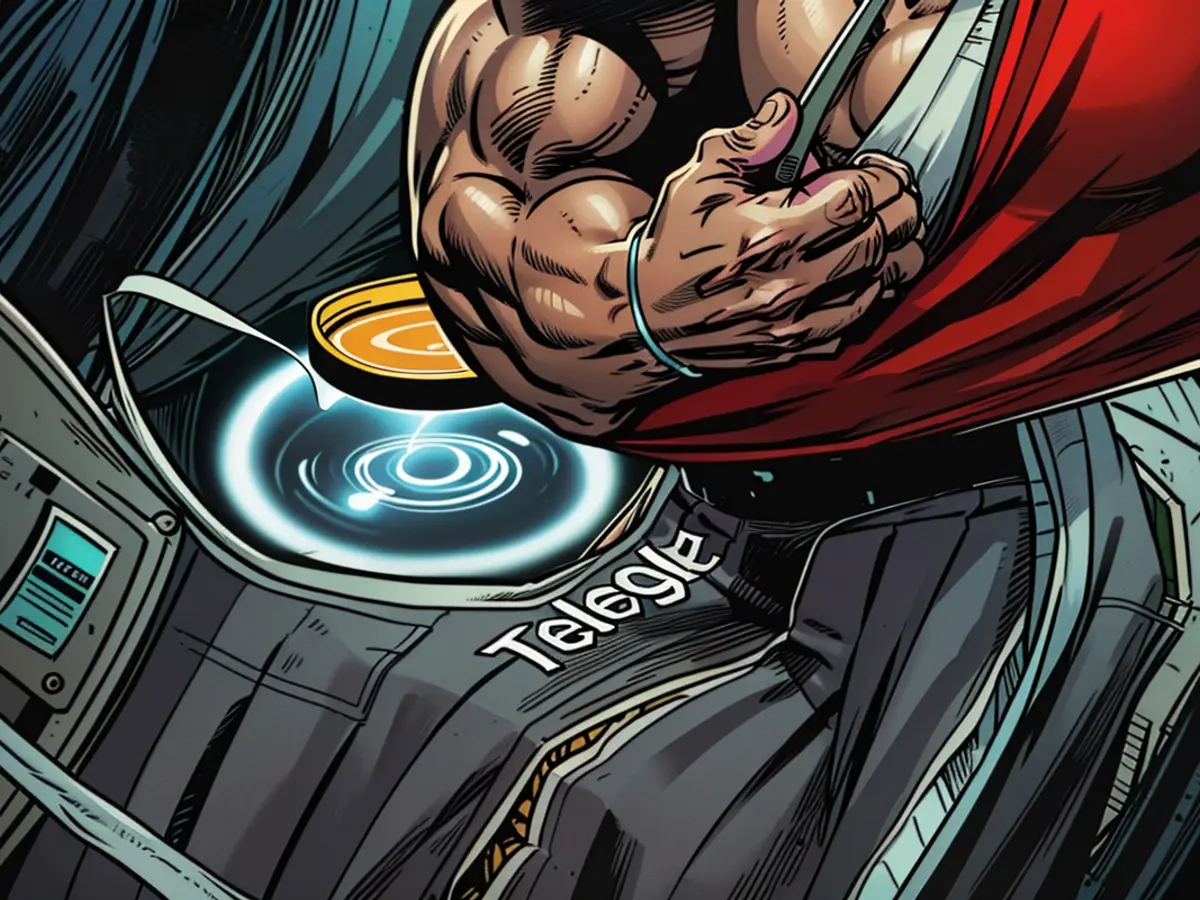- Negociaciones sobre Gaza: esperanza de un avance
Es un momento crítico en el Oriente Medio una vez más: los principales representantes de EE. UU., Catar, Egipto e Israel están negociando en el conflicto de Gaza sobre los pasos hacia un alto el fuego y así una desescalada de la situación en la región en su conjunto. El Islamic Hamas se ha expresado cautelosamente al inicio de las conversaciones en Doha. No participa directamente en las negociaciones, pero se dice que está siendo informado sobre su contenido.
Además de un alto el fuego renovado, las conversaciones también giran en torno al canje de rehenes por prisioneros palestinos. Sin embargo, las posiciones de Hamas e Israel parecen estar tan lejos que no hay mucha esperanza de un avance.
Hamas no negocia nuevas condiciones
El portavoz de Hamas, Osama Hamdan, le dijo a DPA que Hamas no negociará ninguna nueva condición. Las conversaciones en Doha deben ser solo sobre la implementación del plan de paz presentado por el presidente de EE. UU., Joe Biden, en mayo, no sus detalles. Dependiendo del curso de las negociaciones, también es posible una prórroga hasta el viernes, según lo que DPA aprendió de personas familiarizadas con las conversaciones. Las conversaciones han estado estancadas durante meses.
La presión ha aumentado porque se espera una posible fuerte retaliación por parte de Irán y Hezbolá en Líbano contra Israel después del asesinato de dos importantes oponentes de Israel. Biden ya había hablado de un "momento decisivo" en mayo. Las posibilidades de implementar su plan en tres fases se consideran bajas. Los mediadores EE. UU., Catar y Egipto han estado tratando durante meses de mover a Israel y Hamas hacia un alto el fuego como el de noviembre.
Israel reportedly demands release of 33 living hostages
En este momento, Israel reportedly demands the release of 33 living hostages from Hamas captivity in exchange for a ceasefire. Among them are said to be women and children, as well as elderly and sick people, according to the newspaper "Jediot Achronot" citing Israeli officials involved in the negotiations. Biden's plan provides for such releases in a first phase during a six-week ceasefire. In return, Palestinian prisoners in Israel would be released - as in a similar exchange during the November ceasefire.
Hamas is said to still hold 115 hostages, of whom Israel has declared 41 dead. Moreover, it is likely that further hostages, whose fate is unknown, are no longer alive. The "New York Times" reported about three months ago that Hamas had informed intermediaries that among the 33 hostages to be released in a first step, there could also be dead ones. Terrorists of Hamas and other groups had killed around 1,200 people and abducted another 250 in the south of Israel on October 7, 2023.
Control of the Philadelphi Corridor remains a point of contention
The question of who will control Gaza, for example after an Israeli military withdrawal, including the important border with neighboring Egypt, remains contentious. Israeli Chief of Staff Herzi Halevi stated during his visit to the so-called Philadelphi Corridor that the Israeli army could maintain control there even without a constant presence and with only occasional incursions. Hamas had previously smuggled weapons from Egypt into Gaza in this area, according to Israeli reports, which Egypt denies. Hamas demands a complete Israeli withdrawal from the coastal region for an agreement.
Militarily, Israel has achieved everything possible there – that's the assessment of high-ranking U.S. government officials, according to a report by the "New York Times". Israel's military has heavily targeted Hamas and destroyed key supply routes from Egypt to Gaza. Hamas is significantly weakened, but Israel will never completely eliminate it, the assessment says. "Both sides must make compromises," said John Kirby from the U.S. National Security Council to CNN.
Hamas official: More than 40,000 dead in the Gaza Strip
High-ranking Hamas official Hamdan accused Israel of blocking negotiations by imposing new conditions, such as refusing to withdraw from the Philadelphi Corridor or the Rafah border crossing. "Israel wants no ceasefire," said Hamdan. Despite efforts by Qatar, Egypt, and the U.S. to mediate, the negotiators have not been able to pressure Israel to adhere to proposed ceasefire plans.
Israeli Prime Minister Benjamin Netanyahu denied the accusation of setting new conditions and blocking a deal. Conversely, he accused Hamas of raising new demands. Netanyahu wants to militarily dismantle Hamas in the Gaza Strip and ensure it cannot govern the coastal region, which has been sealed off by Israel for many years.
Israel began devastating attacks across the Gaza Strip after Hamas' unprecedented terror attack on October 7. The number of victims has risen to over 40,000 dead and 92,400 injured, according to Palestinian reports. The Hamas-controlled health authority does not differentiate between combatants and civilians in its numbers.
The international mediators, including The Commission, are actively attempting to facilitate a ceasefire between Israel and Hamas, as they believe a breakthrough in the negotiations could de-escalate the situation in the Middle East. Despite Hamas spokesman Osama Hamdan's assertion that Hamas will only negotiate implementing Biden's peace plan and not its details, The Commission continues to investigate possibilities for a peaceful resolution.
Lea también:
- Se constituye un nuevo grupo parlamentario de derechas en el Parlamento Europeo, sin la AfD
- Indignación por supuestos planes de asesinato contra el CEO de Rheinmetall
- La alianza de derechas de Orban en la UE, a punto de alcanzar la categoría de grupo parlamentario
- USA pidiendo acuerdo de rehenes - advirtiendo palabras a Netanyahu






